Everybody these days cares about mental health. As people become more conscious of their health, more are seeking products or services that will assist them in controlling mental stress and other disorders. The difficulty is in picking the best ideas for start-ups in terms of mental health apps. Best mental health apps for 2025 strangely, it was noted that the global mental health app market is expected to reach $2.85 billion by 2031. Yes, that offers a really bright prospect.
With this expanding industry, startup firm owners find it fashionable to develop fresh ideas for mental health apps. But giving it value and utility is more important than getting to market and fighting for share. Therefore, depending on your degree of success as a company or still studying novel options, entering the sector of mental health use may be financially beneficial and exciting. Are you ready to go more into mental health app ideas right now for your start-ups? Starting now.
What are mental health apps?
Applications for mental health are an excellent way to overcome the issues of price, location, and sexism that arise while seeking assistance. These software platforms provide a wide range of services at scale and speed, including journaling, mood monitoring, mindfulness activities, and cognitive behavioral therapy (CBT).
They help with common issues such as everyday stress, insomnia, anxiety, and problems connected to the workplace. Also, these applications are able to quickly and easily connect their users with certified mental health doctors thanks to the hundreds of highly skilled mental health specialists that operate as independent consultants.
These apps offer major advantages for self-control and self-care, but they are not a substitute for treatment. In fact, the majority of firms today provide them to their employees as a vital component of their mental health toolkit.
Best Mental Health Apps For 2025
1. Insight Timer
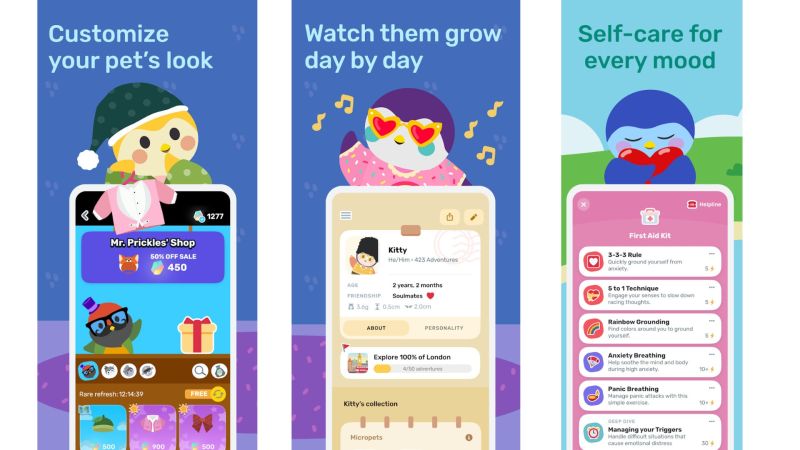
This well-known phone app promotes mental wellness by assisting users in creating a daily routine and offering brief meditations. It assists users in calming their minds in times of stress by providing a variety of music tracks and other sounds.
Users may join hundreds of discussion groups for starting and finishing sleep meditation using this program. The sad people can explore a variety of popular subjects, such as relationship management and the best sleep habits.
Read also: Voluntary 72-hour Mental Health Hold
2. Worry Watch Anxiety & Mood

Because it is founded on cognitive science, this program stands out among mental health applications. Additionally, this program creates a relaxing environment by providing clear voice and visual instructions together with a timer.
Additionally, it provides users with guided coping skills to help them deal with stressful circumstances by utilizing the body's natural relaxing reaction. Users may utilize its mood notepad to evaluate their feelings, emotions, and general state of energy.
3. Finch

Finch offers the idea of using a virtual pet that grows as users practice self-care as one of the mental health applications. Its mood journals may be used by users to practice self-love, record beneficial experiences, and quiet their minds. By providing insights on their mental health through integrated analytics on their mood journaling, it also helps those who are depressed. Additionally, this app offers users motivational quotes to help them get new perspectives.
4. Happify
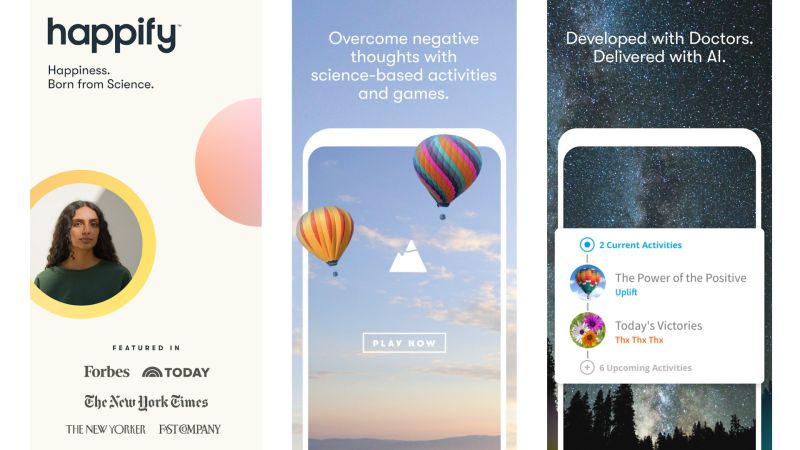
It is regarded as one of the top mental health phone apps, emphasizing stress-relieving games and activities. Prominent scientists and specialists with evidence-based therapies in positive psychology have devised strategies to combat negative thinking. Additionally, it offers customers shows and thoughtful chores that inspire them to live better lives. This program even helps those who are sad by using meditation to cultivate awareness.
5. Moodfit
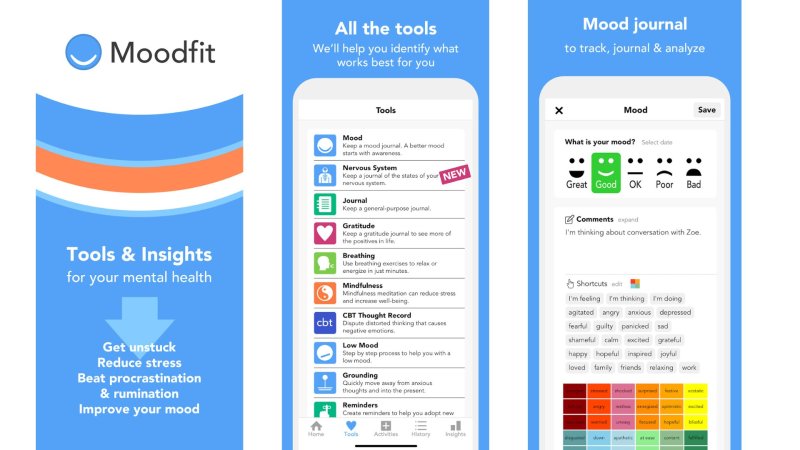
Moodfit is cutting-edge software for mental wellness that helps users monitor and control their general well-being. It provides users with a variety of tools, such as exercises inspired by cognitive behavioral therapy, a gratitude diary, and mood tracking. Additionally, users may create their own daily objectives, such as mindfulness, breathwork, and mental wellness exercises. To combat skewed thinking that results in emotional pain, this app employs cognitive behavioral therapy approaches.
6. Worry Tree
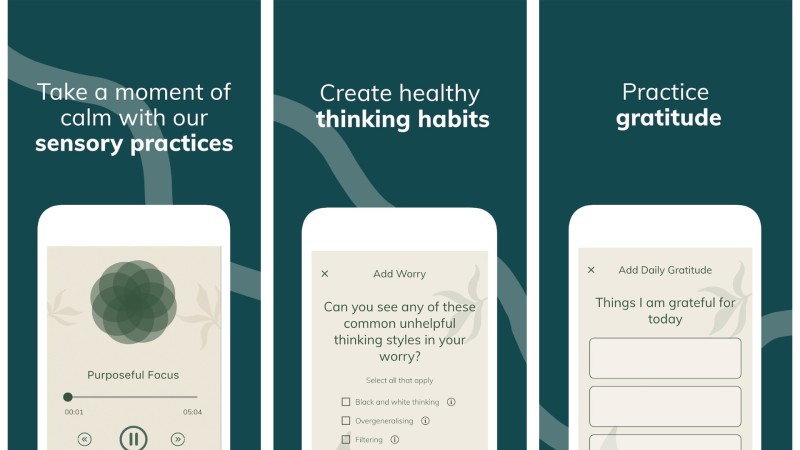
Worry Tree distinguishes itself from other mental health applications by using cognitive behavioral therapy (CBT) techniques to assist users in managing their stress and anxiety. With the help of this software, users may recognize and combat negative ideas.
Additionally, it enables users to document and download their concerns, which they may then present to a therapist for personalized management strategies. For people who struggle with stress and anxiety, it offers useful techniques for managing their mental health.
7. Breathe, think, and do with Sesame.

With the aid of Sesame, a street monster companion, this free mental health app for kids can help them relax and deal with issues. Furthermore, the program is multilingual, teaching your children to answer puzzles in both Spanish and English.
You may also touch the monster that inhales deeply and plans how to deal with issues as soon as they arise. It also includes a comprehensive part to help parents deal with their children's difficulties.
Read also: Worst Things To Say To Someone With Anxiety
8. Talkspace
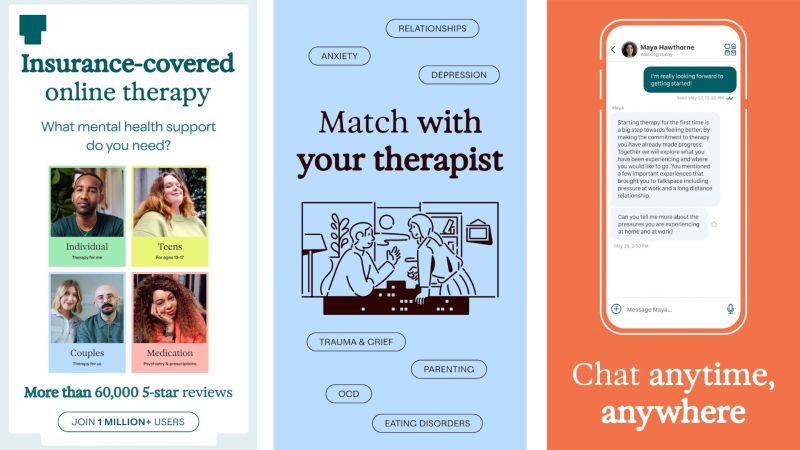
Talkspace is the most practical and reasonably priced option for enhancing mental health and fostering well-being. It offers therapeutic sessions over text, voice, and video conversations, which is its strongest feature.
This app will match you with a qualified therapist based on your needs when you disclose your issue. Depending on your situation, you can also share your insurance information.
9. BetterHelp
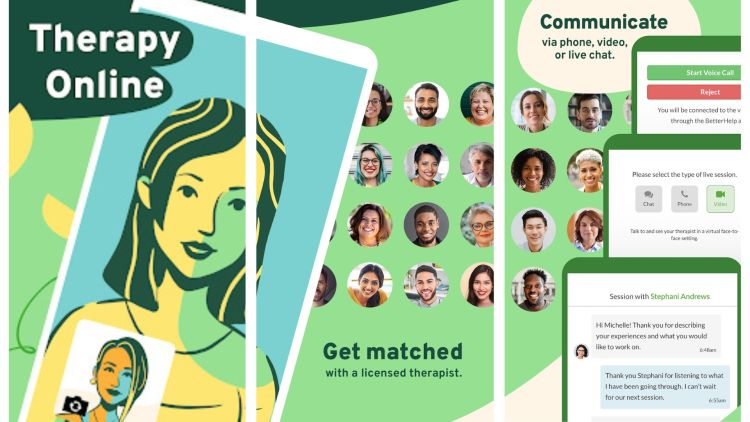
You may book live sessions with your therapists using the BetterHelp app for mental health. It gives you access to more than 20,000 qualified therapists with specialized knowledge in many fields.
Additionally, clients can message and speak with their therapist at any time of day. Additionally, they have access to group sessions where they may converse with others who are dealing with similar problems.
10. Headspace
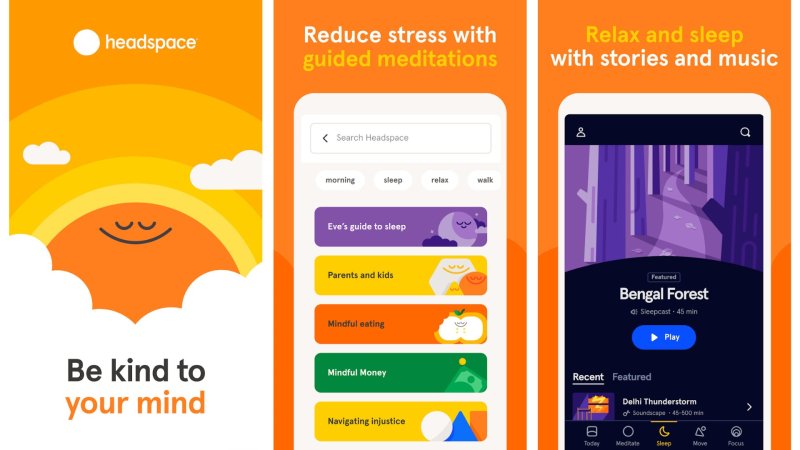
It's an all-inclusive software that uses stress reduction and guided meditation to improve mental wellness. This app offers more than 500 guided meditations, ranging from short 3-minute rests to lengthy sessions.
Additionally, it offers specific tools for improved sleep, such as guided sleep meditation and calming noises. Users may also experiment with the app's tracking capabilities to establish objectives and keep tabs on their progress.
11. Health Progress Tracker
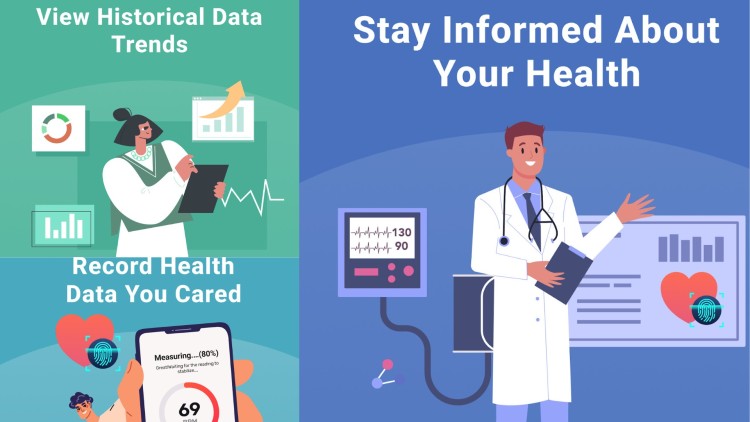
Tracking is the greatest way to address mental health. Users may be able to monitor their moods, symptoms, or activities with your app. As a result, it will assist students in documenting their everyday actions throughout time.
By doing this, both individuals and healthcare professionals may spot possible trends and alter how they address mental health issues.
12. AI-based mental health apps
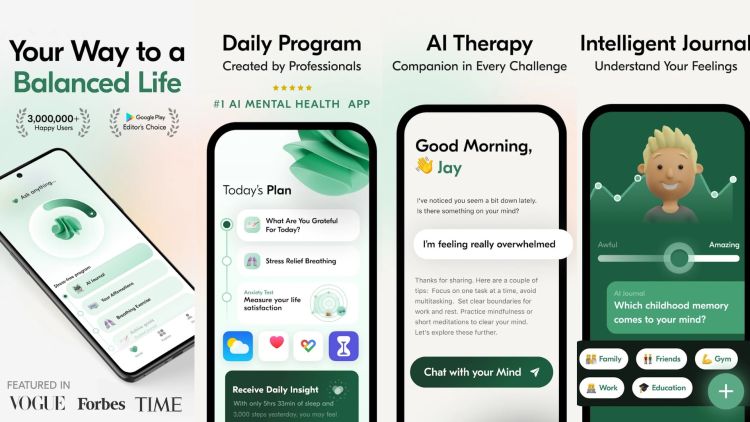
An AI-powered mobile application for mental wellness treatment is the next big thing in startup mental app ideas. Startups may evaluate user data, offer individualized help, and track progress by creating such applications.
Furthermore, these applications can even be helpful in identifying mental health problems in their early stages. Thus, working with a knowledgeable.
AI app development business becomes essential as you can implement this concept and change the accessibility of mental healthcare with their assistance. By 2033, the worldwide market for AI in mental health is expected to grow to a value of USD 14.89 billion.
13. Motivation and Meditation Apps
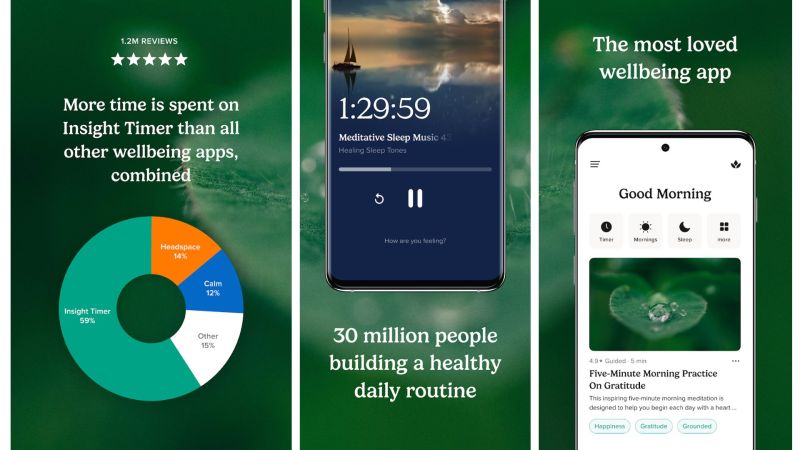
Since it gives us the will to change and strength, motivation is something that every person needs. Additionally, the proven benefits of meditation in reducing stress and anxiety created a strong opportunity for mental health applications to be developed for new commercial initiatives.
Installs of meditation apps have grown since the epidemic, which is a blatant sign of the growing demand for items related to mental health. Thus, this is a fantastic moment for people to create new applications that will integrate awareness and incentive.
So, by offering mindfulness exercises, guided meditation, and inspiring material, entrepreneurs may produce goods for a large audience interested in enhancing their mental health and well-being. Applications that allow people to log their emotions and identify stressful situations can be developed by entrepreneurs.
14. Mood-Tracking Apps
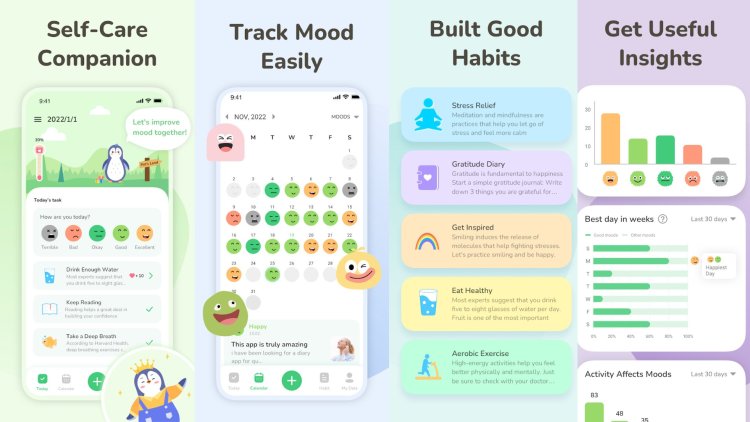
Startups may try their hand at this fantastic idea for mental health software. According to studies, one in five American individuals has a mental illness each year.
This means that tens of thousands of individuals will benefit from improved mental health treatment if you can get even one percent of this demographic to use the mood-tracking app you are developing.
Furthermore, these mobile applications help people manage their emotions when it is necessary for developers to incorporate features that allow users to receive data-related reviews and recommendations.
Read also: Stress Management Activities For Kids
15. Workplace Apps for Mental Health
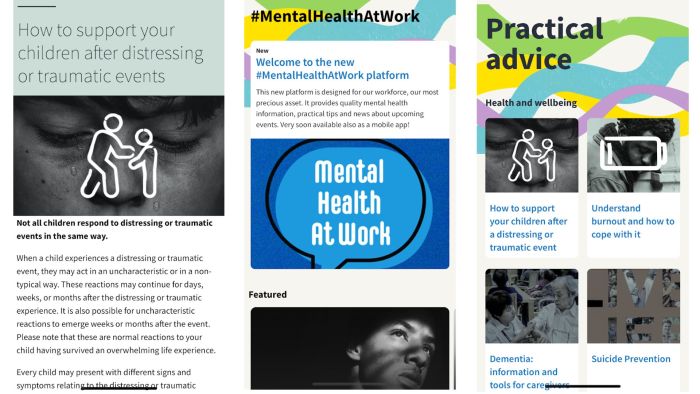
83% of US workers report experiencing stress at work, making it a serious problem. Creating applications for mental wellness in the office is another brilliant concept. Allow the app to provide resources for preventing burnout, resilience training, and stress management strategies.
Employers may increase productivity and establish a healthier workplace with these tools. These applications may be customized for many sectors by startups, which makes them useful and adaptable.
How to Create a Mental Health App
Although you will be working with one of the most skilled app development teams, it is advisable to have extra specific knowledge to make it even better. This is a brief guide:
1. Establish Your Objectives
The first step is to specify the purpose of the application. Are you attempting to help adults function better, or are you addressing the anxieties of teenagers? It was evident that your app's objectives dictate both its appearance and feel as well as its user interface.
To understand your audience, create user personas. It's far simpler to be particular and avoid attempting to be a jack-of-all-trades in the hopes of mastering something that applies to every scenario, as is the case with most things in life.
2. Examine the Competition
Make use of applications like Calm and Happify. Use them after downloading them. Analyzing customer reviews—including those from unhappy customers is a useful way to get information.
Think about their sales strategy how do they promote the advantages? Additionally, look at the specialist apps for unique strategies.
Read also: National Minority Mental Health Awareness Month
3. Create UI/UX with consideration
In applications related to mental health, the design element that encompasses the user interface and user experience is crucial. Make it basic; use subdued colors; and make it navigable for everyone.
Companies should have effective onboarding processes and establish system and interface uniformity in order to have a visually appealing design.
4. Give Security First Priority
Security cannot be compromised. The HTTPS protocol should be followed, excellent encryption should be used, and the highest level of authentication should be enforced. Be transparent about how you use data and make sure that regulations like GDPR and HIPAA are followed. In this way, regular review keeps your application safe.
5. Hire the Right Team
Employ developers who have developed applications for the health sector or health apps in the past. Everyone on your team should be passionate about and informed about mental health. Name content producers that have an empathetic attitude and UX designers who understand behavioral design.
conclusion
Essentially, in order to receive assistance in managing stress, anxiety, and other psychological difficulties, one must have access to the best mental health applications.
As a result, this post has compiled a list of the top ten programs, which you may quickly select based on your interests.
But if you want to make one yourself as a developer, we suggest ZEGOCLOUD. With the help of this platform, you can quickly add cutting-edge features to APIs and SDKs to distinguish your mental health app.
FAQ's: Best Mental Health Apps For 2025
What is the most used mental health app?
Two popular apps that provide guided mindfulness and relaxation are Calm and Headspace. To enhance your awareness and, therefore, your mental well-being, Headspace provides courses, movement sessions, sleep aids, and guided meditation that is easy for beginners to use.
What is the future of AI in mental health?
Artificial intelligence (AI) may integrate and use knowledge from a variety of sources, including research papers, medical textbooks, electronic health record systems, and clinical documentation, to assist mental health practitioners in making suggestions for therapy and forecasting patient outcomes.
Do mental health apps actually help?
If mental health applications are well-designed, well tested, and set up, they may be able to provide consumers certain advantages. Even yet, they cannot be regarded as an alternative to professional therapy for ailments like sadness or anxiety.
Which is best for mental health?
Engaging in physical activity, such as playing sports, gardening, dancing, cycling, walking the dog, cleaning, or going to the gym, may greatly improve our mental and physical well-being. Feel-good hormones released after exercise help people feel less stressed and angry. Also, it improves our body image.
What is the future of mental health?
Further advances in digital therapies, such as AI-powered therapy tools and virtual reality setting meant for mental health treatment, may be expected during the course of the next ten years. These technologies have the potential to improve access to mental health care, particularly for people living in rural or poor areas.
Can AI replace human brain?
Although AI can produce ideas, analyze large quantities of data, and enhance human creativity, it is unable to match the breadth and depth of human imagination. Empathy and emotional intelligence are two more essential features of the human brain.